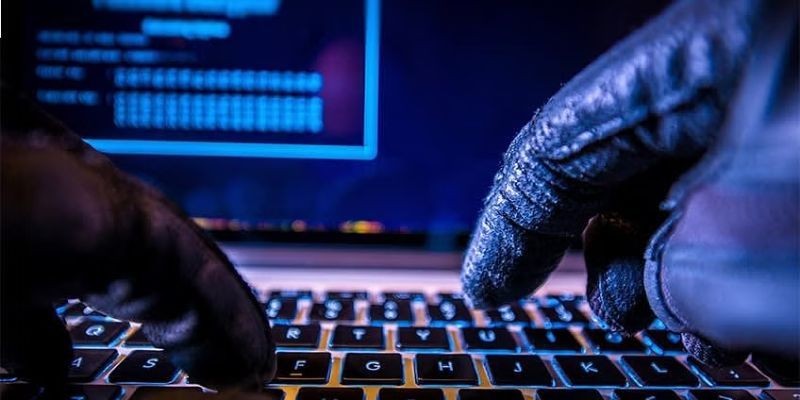As cyber threats grow more advanced, ethical hackers play an increasingly essential role in protecting organizations and individuals from digital harm. These “white-hat” hackers, as they’re often called, use their skills to uncover vulnerabilities before malicious actors can exploit them. If you’re an aspiring ethical hacker, pursuing an Ethical Hacking Course in Chennai can be an excellent starting point to develop your technical skills. This Blog is about the cybersecurity laws and ethics every ethical hacker should know.
Role of Cybersecurity Laws in Ethical Hacking
Cybersecurity laws define what constitutes lawful versus unlawful behavior in the digital realm. These regulations serve as guidelines for ethical hackers, helping them understand the legal frameworks that govern their actions. While laws vary across countries and jurisdictions, here are some fundamental concepts and regulations that every ethical hacker should know.
1. The Computer Fraud and Abuse Act (CFAA)
The Computer Fraud and Abuse Act (CFAA) is one of the key legal frameworks in the United States governing computer-related crimes. Under this act, accessing computer systems without permission can result in severe penalties, including fines and prison time.
2. The General Data Protection Regulation (GDPR)
For those working with clients in the European Union, the General Data Protection Regulation (GDPR) is an essential regulation to understand. Enacted in 2018, GDPR sets strict guidelines on how personal data is collected, stored, and processed, with significant penalties for non-compliance.
Also Check: What are the Basic Concepts of Ethical Hacking?
3. Digital Millennium Copyright Act (DMCA)
The Digital Millennium Copyright Act (DMCA) primarily addresses copyright protection in the digital world, but it also has provisions related to circumventing digital protection measures. Ethical hackers should be cautious about DMCA provisions, as circumventing software protections—even with good intentions—can sometimes lead to legal issues.
4. HIPAA Compliance for Health Data
In the healthcare sector, the Health Insurance Portability and Accountability Act (HIPAA) governs the handling of patient data. For ethical hackers working with healthcare providers, understanding HIPAA is crucial, as it establishes strict requirements for protecting personal health information. For those interested in working with clients in regulated sectors, an Ethical Hacking Course in Bangalore can offer valuable insights into industry-specific laws, such as HIPAA, that ethical hackers must navigate.
5. Information Technology Act (India)
In India, the Information Technology (IT) Act of 2000 governs cybersecurity laws and establishes penalties for cybercrimes. The IT Act criminalizes unauthorized access, data breaches, and other cybercrimes, making it an important legal framework for ethical hackers operating within India.
Ethical Principles for Ethical Hackers
In addition to understanding legal frameworks, ethical hackers should adhere to a set of ethical principles that guide their work. Ethics in cybersecurity not only help build trust with clients but also foster a responsible approach to hacking. Here are some core ethical guidelines for ethical hackers:
1. Obtain Permission
The golden rule of ethical hacking is to always obtain permission before accessing any system. Without proper authorization, hacking—even with good intentions—can quickly turn into illegal activity. Formal contracts or agreements help set clear expectations, giving ethical hackers the right to test systems while ensuring clients are fully aware of the scope and limitations of the work. If you’re new to the field, enrolling in a Cyber Security Course in Bangalore can teach you the importance of maintaining ethical practices, which can greatly impact your credibility and career.
2. Respect Privacy
One of the primary responsibilities of an ethical hacker is to protect sensitive information. During penetration testing or vulnerability assessments, ethical hackers may encounter personal data, confidential files, and sensitive business information. It’s vital to respect the privacy of such information, access only what is necessary, and report any findings directly to the client without disclosing them elsewhere.
3. Report Vulnerabilities Responsibly
Responsible disclosure is an important ethical practice in cybersecurity. When ethical hackers discover vulnerabilities, they should report them directly to the organization rather than publicizing them. This practice prevents malicious actors from exploiting the discovered vulnerabilities before they can be patched.
Also Check: What are the best tools for Ethical Hacking?
4. Maintain Transparency
Transparency builds trust. Ethical hackers should clearly communicate with clients about the methods and tools they will use, the scope of the assessment, and any potential impacts on the system. Being open and honest in every step of the process helps prevent misunderstandings and ensures that both parties are aligned in their objectives.
5. Stay Updated on Evolving Laws and Ethics
Cybersecurity laws and ethical standards are constantly evolving as new technologies and threats emerge. Ethical hackers must keep up-to-date with these changes, attending relevant training sessions, workshops, or courses. Staying informed ensures that you’re always working within current legal frameworks and adhering to the latest ethical standards.
